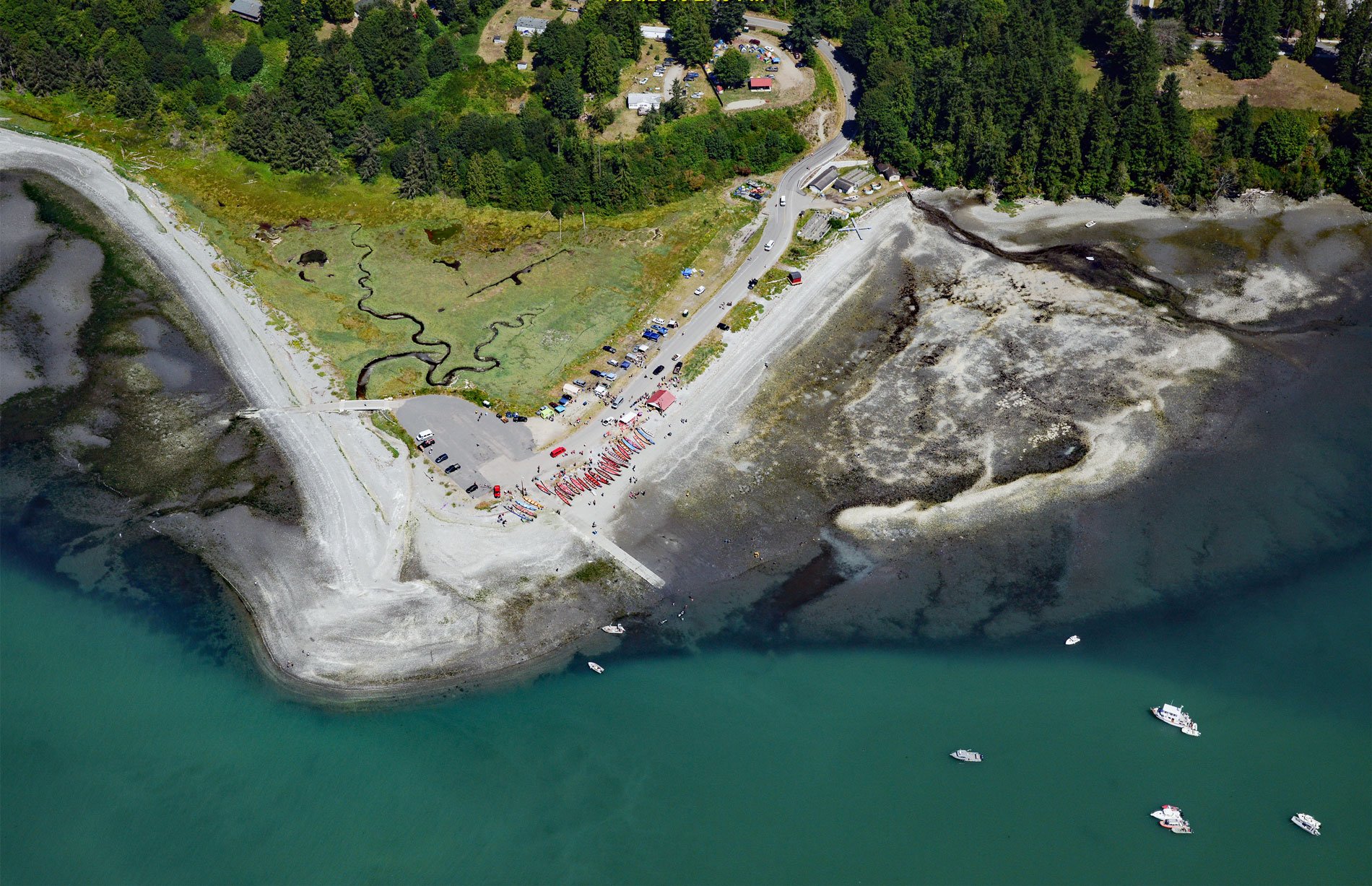Little Boston is a community at the base of Point Julia on the east side entrance of Port Gamble, an inlet on the Kitsap Peninsula near the entrance to Hood Canal, about 21 miles (34 km) northwest of Seattle and 20 miles (32 km) southeast of Port Townsend, Washington. The Kitsap Peninsula is named after Chief Kitsap, an 18th and 19th-century warrior and medicine man of the Suquamish Tribe. Port Gamble was named by Captain George Vancouver in 1792. The Kitsap Peninsula is in the center of the Puget Lowland, an area that was repeatedly glaciated over the last two million years. The surface geology is dominated by the effects of the most recent Vashon glaciation of the Late Pleistocene that redistributed unconsolidated sediments such as till, outwash clay, silt, sand, and gravel to form the present-day landscape. Point Julia is a spit formed by the nearshore transport of sediments by waves and tidal currents. The Kitsap Peninsula is the traditional territory of three Native American peoples; the Suquamish people who inhabited the eastern shores, the Klallam or S’Klallam who occupied the peninsula along the northern part of Hood Canal and the Strait of Juan de Fuca, and the Twanos or Skokomish of southern Hood Canal.
The S’Klallam were historically called the Nux Sklai Yem and belonged to the Salish people who inhabited the coast from central British Columbia to northwestern Oregon. By 1400 AD, the Salish were well established along the shores of the Strait of Juan de Fuca, Admiralty Inlet, and Puget Sound. Permanent villages of plank and pole houses provided shelter for groups of extended families through the wet winters. In the spring, individual families began their use of seasonal camps at established fishing, hunting, and gathering sites throughout their territory. In 1848, one S’Klallam band lived in a village on the west side of Port Gamble bay. In the summer of 1853, Josiah Keller arrived by ship to build a sawmill for the Puget Mill Company. The S’Klallam were moved across the bay to Point Julia in exchange for lumber to build homes. The new community became known as Little Boston and consisted of frame homes built on stilts over the sand spit.
In 1855, the S’Klallam ceded their rights to the land in the Point No Point Treaty. Under that agreement, the tribe was supposed to move to a reservation along with the Skokomish, but few S’Klallam families were interested in moving. They continued to make their living from the water and the land and some had got jobs at the lumber mill. In 1870, health officials burned the community of Little Boston because it represented a health hazard. Under the Indian Reorganization Act of 1934, the U.S. Government purchased land for permanent reservations. In 1938, the Department of the Interior bought land from Puget Mill Company and established the S’Klallam Reservation, and new homes were built overlooking Port Gamble. Today, Little Boston is within the Port Gamble S’Klallam Reservation, which houses the Port Gamble band of the S’Klallam Tribe. The reservation consists of 1,340 acres (542 ha) of land held in trust by the federal government. There is no private land ownership on the reservation. The tribe owns and operates a salmon hatchery on Middle Creek to enhance the local fall chum salmon fishery. Up to 1300 adult chum salmon are collected each fall to release 950,000 fry the following spring. Read more here and here. Explore more of Little Boston and Port Gamble here:

